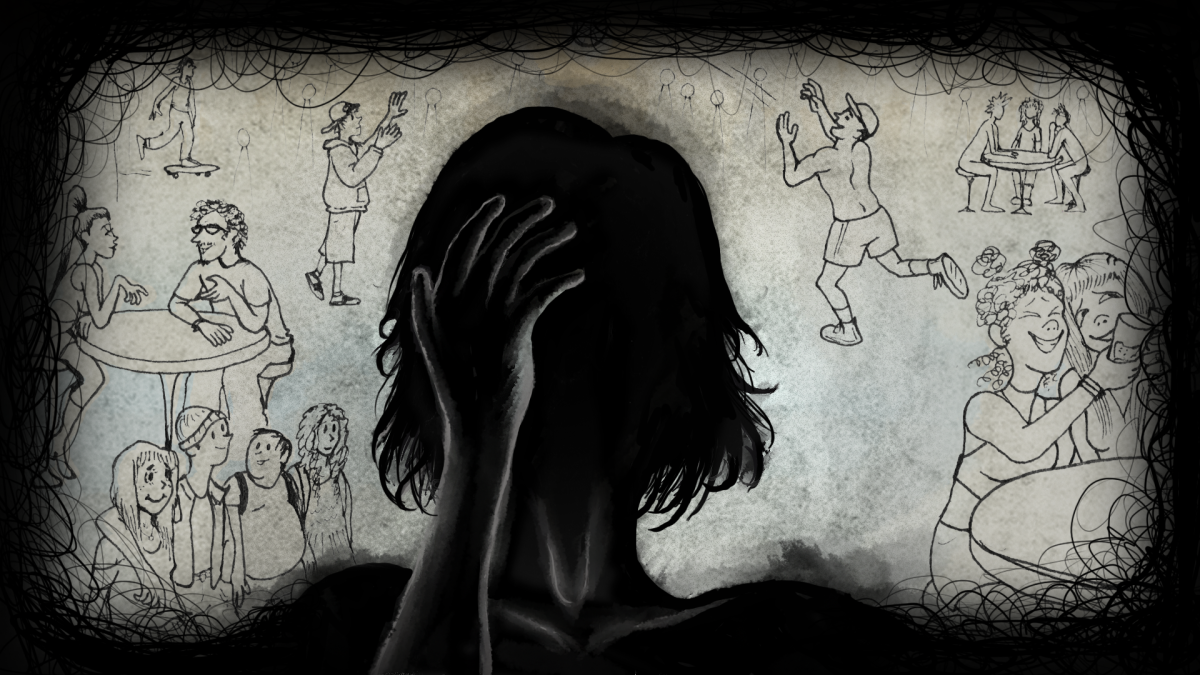
Rory Moon
Rory Moon, Graphics Editor
When a friend shares they’re battling with depression or anxiety, I’ve noticed people quickly lean in with understanding, knowing exactly what to say and exactly what to do. But the rare times anyone mentions diagnoses like bipolar disorder, schizophrenia or any severe mental illness, the room has felt heavier, like the conversation itself has crossed an invisible line.
That difference in reaction reveals a stigma I’ve witnessed repeatedly. Severe mental illnesses such as schizophrenia, borderline personality disorder or bipolar disorder don’t often appear on the hopeful social media graphics or in casual conversations that normalize depression and anxiety. Because they’re less visible in these supportive spaces, they can be treated with fear or discomfort rather than empathy and support.
Angel Bowers, Director of Prevention Services and CARES, said awareness around mental health has grown, but understanding hasn’t always kept pace.
“I think we’ve made a lot of movement as far as talking about concerns like anxiety or depression,” Bowers said. “But I do feel like there is a line when it comes to more pervasive mental health concerns like bipolar, schizophrenia or even suicidal thoughts where the conversation stops.”
That silence can be especially painful. Some may hide their diagnoses, not because they are ashamed of themselves, but because society has made them feel they should be. Feeling isolated or disconnected from others can make everyday life harder. Even reaching out for help may feel impossible, but the longer someone waits, the heavier the burden may become.
Bowers explained that this stigma doesn’t just cause emotional pain; it can interrupt treatment and recovery.
“When we don’t feel safe or comfortable talking about things, we’re more likely to step away from treatment, stop taking medication, or stop going to therapy, which can be kind of a perfect storm,” Bowers said.
That withdrawal can also be triggered by the people closest to us. Families and close friends sometimes respond to a loved one’s severe mental illness with denial, disbelief or even frustration, unintentionally sending the message that the person’s experiences aren’t valid.
It also puts the spotlight on how we talk about mental health; stress and anxiety can be met with empathy while more serious conditions are met with avoidance or minimization, even by the people we trust most.
This isolation isn’t just emotional, it can affect various parts of life. People may lose friendships, miss out on work or school opportunities, or avoid social spaces for fear of judgment. When the world reacts with discomfort instead of understanding, it teaches those living with severe mental illness that their experiences are too difficult, too different or even “too much” for others to handle. That kind of messaging can slowly but surely erode self-esteem and make recovery feel like an uphill battle.
Bowers also said that one of the most damaging myths about people with severe mental illness is that they’re a threat.
“One of the biggest misconceptions is that [those experiencing mental illness are] dangerous or violent,” Bowers said. “But what’s really important to understand is that they’re actually more likely to be victims than perpetrators.”
When people with severe mental illness are met with empathy and compassion rather than fear, the change can be remarkable. Even asking how someone is really doing can help break down the walls that stigma has built. Open discussion that avoids labels and stereotypes can reduce feelings of alienation and remind people that they are human first and not defined by a diagnosis.
At NC State, students navigate the same pressures, isolation and stigma that exist everywhere. Whether in dorms, classroom or student organizations, the way we talk about mental health shapes our community. Campus resources like Counseling Center services, the CARES program, student-led mental health initiatives and the Office of Equal Opportunity are a start, but true change comes when every student treats mental illness with the same empathy and acceptance, no matter the diagnosis.
Bowers said open and honest dialogue across campuses and communities can have a major effect in breaking down long-held stereotypes about severe mental illness.
“The more we normalize it, the more we talk about it and share our own stories, the more it really does begin to normalize the open discussion of these concerns,” Bowers said.
We can do better. We should do better. Broadening mental health discussions to include the full spectrum of illnesses, choosing language that prioritizes people over diagnoses and inviting lived experiences into classrooms, workplaces and media are all steps toward genuine acceptance. Acceptance cannot stop at the disorders we find easy to talk about. If we want a world where everyone can seek help without fear, our compassion has to stretch to every mind with no exceptions.
If you or someone you know is having a mental health emergency, the Counseling Center can be reached 24 hours a day at 919-515-2423. If you are in a crisis situation and need immediate help, please call the National Suicide Prevention Lifeline at 988. In the case of a life-threatening emergency, call 911.